error: #5: cannot open source input file “core_cmInstr.h“
GD32F103VET6和STM32F103VET6引脚兼容。
GD32F103VET6工程模板需要包含头文件:core_cmInstr.h和core_cmFunc.h,这个和STM32F103还是有区别的,否则会报错,如下:
error: #5: cannot open source input file "core_cmInstr.h": No such file or directory
贴出来,以便大家去下载,还要积分,找得还辛苦。
/**************************************************************************//*** @file core_cmFunc.h* @brief CMSIS Cortex-M Core Function Access Header File* @version V3.02* @date 24. May 2012** @note* Copyright (C) 2009-2012 ARM Limited. All rights reserved.** @par* ARM Limited (ARM) is supplying this software for use with Cortex-M* processor based microcontrollers. This file can be freely distributed* within development tools that are supporting such ARM based processors.** @par* THIS SOFTWARE IS PROVIDED "AS IS". NO WARRANTIES, WHETHER EXPRESS, IMPLIED* OR STATUTORY, INCLUDING, BUT NOT LIMITED TO, IMPLIED WARRANTIES OF* MERCHANTABILITY AND FITNESS FOR A PARTICULAR PURPOSE APPLY TO THIS SOFTWARE.* ARM SHALL NOT, IN ANY CIRCUMSTANCES, BE LIABLE FOR SPECIAL, INCIDENTAL, OR* CONSEQUENTIAL DAMAGES, FOR ANY REASON WHATSOEVER.*******************************************************************************/#ifndef __CORE_CMFUNC_H
#define __CORE_CMFUNC_H/* ########################### Core Function Access ########################### */
/** \ingroup CMSIS_Core_FunctionInterface\defgroup CMSIS_Core_RegAccFunctions CMSIS Core Register Access Functions@{*/#if defined ( __CC_ARM ) /*------------------RealView Compiler -----------------*/
/* ARM armcc specific functions */#if (__ARMCC_VERSION < 400677)#error "Please use ARM Compiler Toolchain V4.0.677 or later!"
#endif/* intrinsic void __enable_irq(); */
/* intrinsic void __disable_irq(); *//** \brief Get Control RegisterThis function returns the content of the Control Register.\return Control Register value*/
__STATIC_INLINE uint32_t __get_CONTROL(void)
{register uint32_t __regControl __ASM("control");return(__regControl);
}/** \brief Set Control RegisterThis function writes the given value to the Control Register.\param [in] control Control Register value to set*/
__STATIC_INLINE void __set_CONTROL(uint32_t control)
{register uint32_t __regControl __ASM("control");__regControl = control;
}/** \brief Get IPSR RegisterThis function returns the content of the IPSR Register.\return IPSR Register value*/
__STATIC_INLINE uint32_t __get_IPSR(void)
{register uint32_t __regIPSR __ASM("ipsr");return(__regIPSR);
}/** \brief Get APSR RegisterThis function returns the content of the APSR Register.\return APSR Register value*/
__STATIC_INLINE uint32_t __get_APSR(void)
{register uint32_t __regAPSR __ASM("apsr");return(__regAPSR);
}/** \brief Get xPSR RegisterThis function returns the content of the xPSR Register.\return xPSR Register value*/
__STATIC_INLINE uint32_t __get_xPSR(void)
{register uint32_t __regXPSR __ASM("xpsr");return(__regXPSR);
}/** \brief Get Process Stack PointerThis function returns the current value of the Process Stack Pointer (PSP).\return PSP Register value*/
__STATIC_INLINE uint32_t __get_PSP(void)
{register uint32_t __regProcessStackPointer __ASM("psp");return(__regProcessStackPointer);
}/** \brief Set Process Stack PointerThis function assigns the given value to the Process Stack Pointer (PSP).\param [in] topOfProcStack Process Stack Pointer value to set*/
__STATIC_INLINE void __set_PSP(uint32_t topOfProcStack)
{register uint32_t __regProcessStackPointer __ASM("psp");__regProcessStackPointer = topOfProcStack;
}/** \brief Get Main Stack PointerThis function returns the current value of the Main Stack Pointer (MSP).\return MSP Register value*/
__STATIC_INLINE uint32_t __get_MSP(void)
{register uint32_t __regMainStackPointer __ASM("msp");return(__regMainStackPointer);
}/** \brief Set Main Stack PointerThis function assigns the given value to the Main Stack Pointer (MSP).\param [in] topOfMainStack Main Stack Pointer value to set*/
__STATIC_INLINE void __set_MSP(uint32_t topOfMainStack)
{register uint32_t __regMainStackPointer __ASM("msp");__regMainStackPointer = topOfMainStack;
}/** \brief Get Priority MaskThis function returns the current state of the priority mask bit from the Priority Mask Register.\return Priority Mask value*/
__STATIC_INLINE uint32_t __get_PRIMASK(void)
{register uint32_t __regPriMask __ASM("primask");return(__regPriMask);
}/** \brief Set Priority MaskThis function assigns the given value to the Priority Mask Register.\param [in] priMask Priority Mask*/
__STATIC_INLINE void __set_PRIMASK(uint32_t priMask)
{register uint32_t __regPriMask __ASM("primask");__regPriMask = (priMask);
}#if (__CORTEX_M >= 0x03)/** \brief Enable FIQThis function enables FIQ interrupts by clearing the F-bit in the CPSR.Can only be executed in Privileged modes.*/
#define __enable_fault_irq __enable_fiq/** \brief Disable FIQThis function disables FIQ interrupts by setting the F-bit in the CPSR.Can only be executed in Privileged modes.*/
#define __disable_fault_irq __disable_fiq/** \brief Get Base PriorityThis function returns the current value of the Base Priority register.\return Base Priority register value*/
__STATIC_INLINE uint32_t __get_BASEPRI(void)
{register uint32_t __regBasePri __ASM("basepri");return(__regBasePri);
}/** \brief Set Base PriorityThis function assigns the given value to the Base Priority register.\param [in] basePri Base Priority value to set*/
__STATIC_INLINE void __set_BASEPRI(uint32_t basePri)
{register uint32_t __regBasePri __ASM("basepri");__regBasePri = (basePri & 0xff);
}/** \brief Get Fault MaskThis function returns the current value of the Fault Mask register.\return Fault Mask register value*/
__STATIC_INLINE uint32_t __get_FAULTMASK(void)
{register uint32_t __regFaultMask __ASM("faultmask");return(__regFaultMask);
}/** \brief Set Fault MaskThis function assigns the given value to the Fault Mask register.\param [in] faultMask Fault Mask value to set*/
__STATIC_INLINE void __set_FAULTMASK(uint32_t faultMask)
{register uint32_t __regFaultMask __ASM("faultmask");__regFaultMask = (faultMask & (uint32_t)1);
}#endif /* (__CORTEX_M >= 0x03) */#if (__CORTEX_M == 0x04)/** \brief Get FPSCRThis function returns the current value of the Floating Point Status/Control register.\return Floating Point Status/Control register value*/
__STATIC_INLINE uint32_t __get_FPSCR(void)
{
#if (__FPU_PRESENT == 1) && (__FPU_USED == 1)register uint32_t __regfpscr __ASM("fpscr");return(__regfpscr);
#elsereturn(0);
#endif
}/** \brief Set FPSCRThis function assigns the given value to the Floating Point Status/Control register.\param [in] fpscr Floating Point Status/Control value to set*/
__STATIC_INLINE void __set_FPSCR(uint32_t fpscr)
{
#if (__FPU_PRESENT == 1) && (__FPU_USED == 1)register uint32_t __regfpscr __ASM("fpscr");__regfpscr = (fpscr);
#endif
}#endif /* (__CORTEX_M == 0x04) */#elif defined ( __ICCARM__ ) /*------------------ ICC Compiler -------------------*/
/* IAR iccarm specific functions */#include <cmsis_iar.h>#elif defined ( __TMS470__ ) /*---------------- TI CCS Compiler ------------------*/
/* TI CCS specific functions */#include <cmsis_ccs.h>#elif defined ( __GNUC__ ) /*------------------ GNU Compiler ---------------------*/
/* GNU gcc specific functions *//** \brief Enable IRQ InterruptsThis function enables IRQ interrupts by clearing the I-bit in the CPSR.Can only be executed in Privileged modes.*/
__attribute__( ( always_inline ) ) __STATIC_INLINE void __enable_irq(void)
{__ASM volatile ("cpsie i" : : : "memory");
}/** \brief Disable IRQ InterruptsThis function disables IRQ interrupts by setting the I-bit in the CPSR.Can only be executed in Privileged modes.*/
__attribute__( ( always_inline ) ) __STATIC_INLINE void __disable_irq(void)
{__ASM volatile ("cpsid i" : : : "memory");
}/** \brief Get Control RegisterThis function returns the content of the Control Register.\return Control Register value*/
__attribute__( ( always_inline ) ) __STATIC_INLINE uint32_t __get_CONTROL(void)
{uint32_t result;__ASM volatile ("MRS %0, control" : "=r" (result) );return(result);
}/** \brief Set Control RegisterThis function writes the given value to the Control Register.\param [in] control Control Register value to set*/
__attribute__( ( always_inline ) ) __STATIC_INLINE void __set_CONTROL(uint32_t control)
{__ASM volatile ("MSR control, %0" : : "r" (control) );
}/** \brief Get IPSR RegisterThis function returns the content of the IPSR Register.\return IPSR Register value*/
__attribute__( ( always_inline ) ) __STATIC_INLINE uint32_t __get_IPSR(void)
{uint32_t result;__ASM volatile ("MRS %0, ipsr" : "=r" (result) );return(result);
}/** \brief Get APSR RegisterThis function returns the content of the APSR Register.\return APSR Register value*/
__attribute__( ( always_inline ) ) __STATIC_INLINE uint32_t __get_APSR(void)
{uint32_t result;__ASM volatile ("MRS %0, apsr" : "=r" (result) );return(result);
}/** \brief Get xPSR RegisterThis function returns the content of the xPSR Register.\return xPSR Register value*/
__attribute__( ( always_inline ) ) __STATIC_INLINE uint32_t __get_xPSR(void)
{uint32_t result;__ASM volatile ("MRS %0, xpsr" : "=r" (result) );return(result);
}/** \brief Get Process Stack PointerThis function returns the current value of the Process Stack Pointer (PSP).\return PSP Register value*/
__attribute__( ( always_inline ) ) __STATIC_INLINE uint32_t __get_PSP(void)
{register uint32_t result;__ASM volatile ("MRS %0, psp\n" : "=r" (result) );return(result);
}/** \brief Set Process Stack PointerThis function assigns the given value to the Process Stack Pointer (PSP).\param [in] topOfProcStack Process Stack Pointer value to set*/
__attribute__( ( always_inline ) ) __STATIC_INLINE void __set_PSP(uint32_t topOfProcStack)
{__ASM volatile ("MSR psp, %0\n" : : "r" (topOfProcStack) );
}/** \brief Get Main Stack PointerThis function returns the current value of the Main Stack Pointer (MSP).\return MSP Register value*/
__attribute__( ( always_inline ) ) __STATIC_INLINE uint32_t __get_MSP(void)
{register uint32_t result;__ASM volatile ("MRS %0, msp\n" : "=r" (result) );return(result);
}/** \brief Set Main Stack PointerThis function assigns the given value to the Main Stack Pointer (MSP).\param [in] topOfMainStack Main Stack Pointer value to set*/
__attribute__( ( always_inline ) ) __STATIC_INLINE void __set_MSP(uint32_t topOfMainStack)
{__ASM volatile ("MSR msp, %0\n" : : "r" (topOfMainStack) );
}/** \brief Get Priority MaskThis function returns the current state of the priority mask bit from the Priority Mask Register.\return Priority Mask value*/
__attribute__( ( always_inline ) ) __STATIC_INLINE uint32_t __get_PRIMASK(void)
{uint32_t result;__ASM volatile ("MRS %0, primask" : "=r" (result) );return(result);
}/** \brief Set Priority MaskThis function assigns the given value to the Priority Mask Register.\param [in] priMask Priority Mask*/
__attribute__( ( always_inline ) ) __STATIC_INLINE void __set_PRIMASK(uint32_t priMask)
{__ASM volatile ("MSR primask, %0" : : "r" (priMask) );
}#if (__CORTEX_M >= 0x03)/** \brief Enable FIQThis function enables FIQ interrupts by clearing the F-bit in the CPSR.Can only be executed in Privileged modes.*/
__attribute__( ( always_inline ) ) __STATIC_INLINE void __enable_fault_irq(void)
{__ASM volatile ("cpsie f" : : : "memory");
}/** \brief Disable FIQThis function disables FIQ interrupts by setting the F-bit in the CPSR.Can only be executed in Privileged modes.*/
__attribute__( ( always_inline ) ) __STATIC_INLINE void __disable_fault_irq(void)
{__ASM volatile ("cpsid f" : : : "memory");
}/** \brief Get Base PriorityThis function returns the current value of the Base Priority register.\return Base Priority register value*/
__attribute__( ( always_inline ) ) __STATIC_INLINE uint32_t __get_BASEPRI(void)
{uint32_t result;__ASM volatile ("MRS %0, basepri_max" : "=r" (result) );return(result);
}/** \brief Set Base PriorityThis function assigns the given value to the Base Priority register.\param [in] basePri Base Priority value to set*/
__attribute__( ( always_inline ) ) __STATIC_INLINE void __set_BASEPRI(uint32_t value)
{__ASM volatile ("MSR basepri, %0" : : "r" (value) );
}/** \brief Get Fault MaskThis function returns the current value of the Fault Mask register.\return Fault Mask register value*/
__attribute__( ( always_inline ) ) __STATIC_INLINE uint32_t __get_FAULTMASK(void)
{uint32_t result;__ASM volatile ("MRS %0, faultmask" : "=r" (result) );return(result);
}/** \brief Set Fault MaskThis function assigns the given value to the Fault Mask register.\param [in] faultMask Fault Mask value to set*/
__attribute__( ( always_inline ) ) __STATIC_INLINE void __set_FAULTMASK(uint32_t faultMask)
{__ASM volatile ("MSR faultmask, %0" : : "r" (faultMask) );
}#endif /* (__CORTEX_M >= 0x03) */#if (__CORTEX_M == 0x04)/** \brief Get FPSCRThis function returns the current value of the Floating Point Status/Control register.\return Floating Point Status/Control register value*/
__attribute__( ( always_inline ) ) __STATIC_INLINE uint32_t __get_FPSCR(void)
{
#if (__FPU_PRESENT == 1) && (__FPU_USED == 1)uint32_t result;__ASM volatile ("VMRS %0, fpscr" : "=r" (result) );return(result);
#elsereturn(0);
#endif
}/** \brief Set FPSCRThis function assigns the given value to the Floating Point Status/Control register.\param [in] fpscr Floating Point Status/Control value to set*/
__attribute__( ( always_inline ) ) __STATIC_INLINE void __set_FPSCR(uint32_t fpscr)
{
#if (__FPU_PRESENT == 1) && (__FPU_USED == 1)__ASM volatile ("VMSR fpscr, %0" : : "r" (fpscr) );
#endif
}#endif /* (__CORTEX_M == 0x04) */#elif defined ( __TASKING__ ) /*------------------ TASKING Compiler --------------*/
/* TASKING carm specific functions *//** The CMSIS functions have been implemented as intrinsics in the compiler.* Please use "carm -?i" to get an up to date list of all instrinsics,* Including the CMSIS ones.*/#endif/*@} end of CMSIS_Core_RegAccFunctions */#endif /* __CORE_CMFUNC_H *//**************************************************************************//*** @file core_cmInstr.h* @brief CMSIS Cortex-M Core Instruction Access Header File* @version V3.02* @date 08. May 2012** @note* Copyright (C) 2009-2012 ARM Limited. All rights reserved.** @par* ARM Limited (ARM) is supplying this software for use with Cortex-M* processor based microcontrollers. This file can be freely distributed* within development tools that are supporting such ARM based processors.** @par* THIS SOFTWARE IS PROVIDED "AS IS". NO WARRANTIES, WHETHER EXPRESS, IMPLIED* OR STATUTORY, INCLUDING, BUT NOT LIMITED TO, IMPLIED WARRANTIES OF* MERCHANTABILITY AND FITNESS FOR A PARTICULAR PURPOSE APPLY TO THIS SOFTWARE.* ARM SHALL NOT, IN ANY CIRCUMSTANCES, BE LIABLE FOR SPECIAL, INCIDENTAL, OR* CONSEQUENTIAL DAMAGES, FOR ANY REASON WHATSOEVER.*******************************************************************************/#ifndef __CORE_CMINSTR_H
#define __CORE_CMINSTR_H/* ########################## Core Instruction Access ######################### */
/** \defgroup CMSIS_Core_InstructionInterface CMSIS Core Instruction InterfaceAccess to dedicated instructions@{
*/#if defined ( __CC_ARM ) /*------------------RealView Compiler -----------------*/
/* ARM armcc specific functions */#if (__ARMCC_VERSION < 400677)#error "Please use ARM Compiler Toolchain V4.0.677 or later!"
#endif/** \brief No OperationNo Operation does nothing. This instruction can be used for code alignment purposes.*/
#define __NOP __nop/** \brief Wait For InterruptWait For Interrupt is a hint instruction that suspends executionuntil one of a number of events occurs.*/
#define __WFI __wfi/** \brief Wait For EventWait For Event is a hint instruction that permits the processor to entera low-power state until one of a number of events occurs.*/
#define __WFE __wfe/** \brief Send EventSend Event is a hint instruction. It causes an event to be signaled to the CPU.*/
#define __SEV __sev/** \brief Instruction Synchronization BarrierInstruction Synchronization Barrier flushes the pipeline in the processor,so that all instructions following the ISB are fetched from cache ormemory, after the instruction has been completed.*/
#define __ISB() __isb(0xF)/** \brief Data Synchronization BarrierThis function acts as a special kind of Data Memory Barrier.It completes when all explicit memory accesses before this instruction complete.*/
#define __DSB() __dsb(0xF)/** \brief Data Memory BarrierThis function ensures the apparent order of the explicit memory operations beforeand after the instruction, without ensuring their completion.*/
#define __DMB() __dmb(0xF)/** \brief Reverse byte order (32 bit)This function reverses the byte order in integer value.\param [in] value Value to reverse\return Reversed value*/
#define __REV __rev/** \brief Reverse byte order (16 bit)This function reverses the byte order in two unsigned short values.\param [in] value Value to reverse\return Reversed value*/
#ifndef __NO_EMBEDDED_ASM
__attribute__((section(".rev16_text"))) __STATIC_INLINE __ASM uint32_t __REV16(uint32_t value)
{rev16 r0, r0bx lr
}
#endif/** \brief Reverse byte order in signed short valueThis function reverses the byte order in a signed short value with sign extension to integer.\param [in] value Value to reverse\return Reversed value*/
#ifndef __NO_EMBEDDED_ASM
__attribute__((section(".revsh_text"))) __STATIC_INLINE __ASM int32_t __REVSH(int32_t value)
{revsh r0, r0bx lr
}
#endif/** \brief Rotate Right in unsigned value (32 bit)This function Rotate Right (immediate) provides the value of the contents of a register rotated by a variable number of bits.\param [in] value Value to rotate\param [in] value Number of Bits to rotate\return Rotated value*/
#define __ROR __ror#if (__CORTEX_M >= 0x03)/** \brief Reverse bit order of valueThis function reverses the bit order of the given value.\param [in] value Value to reverse\return Reversed value*/
#define __RBIT __rbit/** \brief LDR Exclusive (8 bit)This function performs a exclusive LDR command for 8 bit value.\param [in] ptr Pointer to data\return value of type uint8_t at (*ptr)*/
#define __LDREXB(ptr) ((uint8_t ) __ldrex(ptr))/** \brief LDR Exclusive (16 bit)This function performs a exclusive LDR command for 16 bit values.\param [in] ptr Pointer to data\return value of type uint16_t at (*ptr)*/
#define __LDREXH(ptr) ((uint16_t) __ldrex(ptr))/** \brief LDR Exclusive (32 bit)This function performs a exclusive LDR command for 32 bit values.\param [in] ptr Pointer to data\return value of type uint32_t at (*ptr)*/
#define __LDREXW(ptr) ((uint32_t ) __ldrex(ptr))/** \brief STR Exclusive (8 bit)This function performs a exclusive STR command for 8 bit values.\param [in] value Value to store\param [in] ptr Pointer to location\return 0 Function succeeded\return 1 Function failed*/
#define __STREXB(value, ptr) __strex(value, ptr)/** \brief STR Exclusive (16 bit)This function performs a exclusive STR command for 16 bit values.\param [in] value Value to store\param [in] ptr Pointer to location\return 0 Function succeeded\return 1 Function failed*/
#define __STREXH(value, ptr) __strex(value, ptr)/** \brief STR Exclusive (32 bit)This function performs a exclusive STR command for 32 bit values.\param [in] value Value to store\param [in] ptr Pointer to location\return 0 Function succeeded\return 1 Function failed*/
#define __STREXW(value, ptr) __strex(value, ptr)/** \brief Remove the exclusive lockThis function removes the exclusive lock which is created by LDREX.*/
#define __CLREX __clrex/** \brief Signed SaturateThis function saturates a signed value.\param [in] value Value to be saturated\param [in] sat Bit position to saturate to (1..32)\return Saturated value*/
#define __SSAT __ssat/** \brief Unsigned SaturateThis function saturates an unsigned value.\param [in] value Value to be saturated\param [in] sat Bit position to saturate to (0..31)\return Saturated value*/
#define __USAT __usat/** \brief Count leading zerosThis function counts the number of leading zeros of a data value.\param [in] value Value to count the leading zeros\return number of leading zeros in value*/
#define __CLZ __clz#endif /* (__CORTEX_M >= 0x03) */#elif defined ( __ICCARM__ ) /*------------------ ICC Compiler -------------------*/
/* IAR iccarm specific functions */#include <cmsis_iar.h>#elif defined ( __TMS470__ ) /*---------------- TI CCS Compiler ------------------*/
/* TI CCS specific functions */#include <cmsis_ccs.h>#elif defined ( __GNUC__ ) /*------------------ GNU Compiler ---------------------*/
/* GNU gcc specific functions *//** \brief No OperationNo Operation does nothing. This instruction can be used for code alignment purposes.*/
__attribute__( ( always_inline ) ) __STATIC_INLINE void __NOP(void)
{__ASM volatile ("nop");
}/** \brief Wait For InterruptWait For Interrupt is a hint instruction that suspends executionuntil one of a number of events occurs.*/
__attribute__( ( always_inline ) ) __STATIC_INLINE void __WFI(void)
{__ASM volatile ("wfi");
}/** \brief Wait For EventWait For Event is a hint instruction that permits the processor to entera low-power state until one of a number of events occurs.*/
__attribute__( ( always_inline ) ) __STATIC_INLINE void __WFE(void)
{__ASM volatile ("wfe");
}/** \brief Send EventSend Event is a hint instruction. It causes an event to be signaled to the CPU.*/
__attribute__( ( always_inline ) ) __STATIC_INLINE void __SEV(void)
{__ASM volatile ("sev");
}/** \brief Instruction Synchronization BarrierInstruction Synchronization Barrier flushes the pipeline in the processor,so that all instructions following the ISB are fetched from cache ormemory, after the instruction has been completed.*/
__attribute__( ( always_inline ) ) __STATIC_INLINE void __ISB(void)
{__ASM volatile ("isb");
}/** \brief Data Synchronization BarrierThis function acts as a special kind of Data Memory Barrier.It completes when all explicit memory accesses before this instruction complete.*/
__attribute__( ( always_inline ) ) __STATIC_INLINE void __DSB(void)
{__ASM volatile ("dsb");
}/** \brief Data Memory BarrierThis function ensures the apparent order of the explicit memory operations beforeand after the instruction, without ensuring their completion.*/
__attribute__( ( always_inline ) ) __STATIC_INLINE void __DMB(void)
{__ASM volatile ("dmb");
}/** \brief Reverse byte order (32 bit)This function reverses the byte order in integer value.\param [in] value Value to reverse\return Reversed value*/
__attribute__( ( always_inline ) ) __STATIC_INLINE uint32_t __REV(uint32_t value)
{uint32_t result;__ASM volatile ("rev %0, %1" : "=r" (result) : "r" (value) );return(result);
}/** \brief Reverse byte order (16 bit)This function reverses the byte order in two unsigned short values.\param [in] value Value to reverse\return Reversed value*/
__attribute__( ( always_inline ) ) __STATIC_INLINE uint32_t __REV16(uint32_t value)
{uint32_t result;__ASM volatile ("rev16 %0, %1" : "=r" (result) : "r" (value) );return(result);
}/** \brief Reverse byte order in signed short valueThis function reverses the byte order in a signed short value with sign extension to integer.\param [in] value Value to reverse\return Reversed value*/
__attribute__( ( always_inline ) ) __STATIC_INLINE int32_t __REVSH(int32_t value)
{uint32_t result;__ASM volatile ("revsh %0, %1" : "=r" (result) : "r" (value) );return(result);
}/** \brief Rotate Right in unsigned value (32 bit)This function Rotate Right (immediate) provides the value of the contents of a register rotated by a variable number of bits.\param [in] value Value to rotate\param [in] value Number of Bits to rotate\return Rotated value*/
__attribute__( ( always_inline ) ) __STATIC_INLINE uint32_t __ROR(uint32_t op1, uint32_t op2)
{__ASM volatile ("ror %0, %0, %1" : "+r" (op1) : "r" (op2) );return(op1);
}#if (__CORTEX_M >= 0x03)/** \brief Reverse bit order of valueThis function reverses the bit order of the given value.\param [in] value Value to reverse\return Reversed value*/
__attribute__( ( always_inline ) ) __STATIC_INLINE uint32_t __RBIT(uint32_t value)
{uint32_t result;__ASM volatile ("rbit %0, %1" : "=r" (result) : "r" (value) );return(result);
}/** \brief LDR Exclusive (8 bit)This function performs a exclusive LDR command for 8 bit value.\param [in] ptr Pointer to data\return value of type uint8_t at (*ptr)*/
__attribute__( ( always_inline ) ) __STATIC_INLINE uint8_t __LDREXB(volatile uint8_t *addr)
{uint8_t result;__ASM volatile ("ldrexb %0, [%1]" : "=r" (result) : "r" (addr) );return(result);
}/** \brief LDR Exclusive (16 bit)This function performs a exclusive LDR command for 16 bit values.\param [in] ptr Pointer to data\return value of type uint16_t at (*ptr)*/
__attribute__( ( always_inline ) ) __STATIC_INLINE uint16_t __LDREXH(volatile uint16_t *addr)
{uint16_t result;__ASM volatile ("ldrexh %0, [%1]" : "=r" (result) : "r" (addr) );return(result);
}/** \brief LDR Exclusive (32 bit)This function performs a exclusive LDR command for 32 bit values.\param [in] ptr Pointer to data\return value of type uint32_t at (*ptr)*/
__attribute__( ( always_inline ) ) __STATIC_INLINE uint32_t __LDREXW(volatile uint32_t *addr)
{uint32_t result;__ASM volatile ("ldrex %0, [%1]" : "=r" (result) : "r" (addr) );return(result);
}/** \brief STR Exclusive (8 bit)This function performs a exclusive STR command for 8 bit values.\param [in] value Value to store\param [in] ptr Pointer to location\return 0 Function succeeded\return 1 Function failed*/
__attribute__( ( always_inline ) ) __STATIC_INLINE uint32_t __STREXB(uint8_t value, volatile uint8_t *addr)
{uint32_t result;__ASM volatile ("strexb %0, %2, [%1]" : "=&r" (result) : "r" (addr), "r" (value) );return(result);
}/** \brief STR Exclusive (16 bit)This function performs a exclusive STR command for 16 bit values.\param [in] value Value to store\param [in] ptr Pointer to location\return 0 Function succeeded\return 1 Function failed*/
__attribute__( ( always_inline ) ) __STATIC_INLINE uint32_t __STREXH(uint16_t value, volatile uint16_t *addr)
{uint32_t result;__ASM volatile ("strexh %0, %2, [%1]" : "=&r" (result) : "r" (addr), "r" (value) );return(result);
}/** \brief STR Exclusive (32 bit)This function performs a exclusive STR command for 32 bit values.\param [in] value Value to store\param [in] ptr Pointer to location\return 0 Function succeeded\return 1 Function failed*/
__attribute__( ( always_inline ) ) __STATIC_INLINE uint32_t __STREXW(uint32_t value, volatile uint32_t *addr)
{uint32_t result;__ASM volatile ("strex %0, %2, [%1]" : "=&r" (result) : "r" (addr), "r" (value) );return(result);
}/** \brief Remove the exclusive lockThis function removes the exclusive lock which is created by LDREX.*/
__attribute__( ( always_inline ) ) __STATIC_INLINE void __CLREX(void)
{__ASM volatile ("clrex");
}/** \brief Signed SaturateThis function saturates a signed value.\param [in] value Value to be saturated\param [in] sat Bit position to saturate to (1..32)\return Saturated value*/
#define __SSAT(ARG1,ARG2) \
({ \uint32_t __RES, __ARG1 = (ARG1); \__ASM ("ssat %0, %1, %2" : "=r" (__RES) : "I" (ARG2), "r" (__ARG1) ); \__RES; \})/** \brief Unsigned SaturateThis function saturates an unsigned value.\param [in] value Value to be saturated\param [in] sat Bit position to saturate to (0..31)\return Saturated value*/
#define __USAT(ARG1,ARG2) \
({ \uint32_t __RES, __ARG1 = (ARG1); \__ASM ("usat %0, %1, %2" : "=r" (__RES) : "I" (ARG2), "r" (__ARG1) ); \__RES; \})/** \brief Count leading zerosThis function counts the number of leading zeros of a data value.\param [in] value Value to count the leading zeros\return number of leading zeros in value*/
__attribute__( ( always_inline ) ) __STATIC_INLINE uint8_t __CLZ(uint32_t value)
{uint8_t result;__ASM volatile ("clz %0, %1" : "=r" (result) : "r" (value) );return(result);
}#endif /* (__CORTEX_M >= 0x03) */#elif defined ( __TASKING__ ) /*------------------ TASKING Compiler --------------*/
/* TASKING carm specific functions *//** The CMSIS functions have been implemented as intrinsics in the compiler.* Please use "carm -?i" to get an up to date list of all intrinsics,* Including the CMSIS ones.*/#endif/*@}*/ /* end of group CMSIS_Core_InstructionInterface */#endif /* __CORE_CMINSTR_H */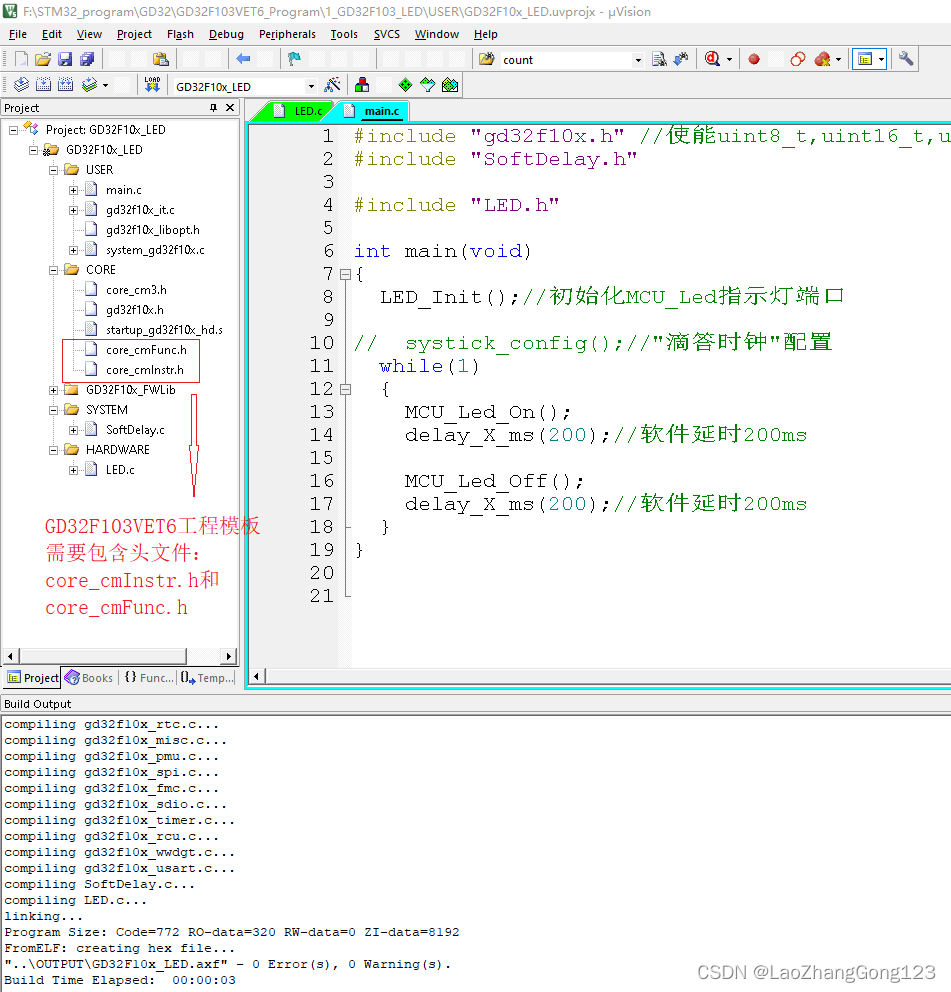
相关文章:

error: #5: cannot open source input file “core_cmInstr.h“
GD32F103VET6和STM32F103VET6引脚兼容。 GD32F103VET6工程模板需要包含头文件:core_cmInstr.h和core_cmFunc.h,这个和STM32F103还是有区别的,否则会报错,如下: error: #5: cannot open source input file "core…...

FastAPI 教程、结合vue实现前后端分离
英文版文档:https://fastapi.tiangolo.com/ 中文版文档:https://fastapi.tiangolo.com/zh/ 1、FastAPI 教程 简 介 FastAPI 和 Sanic 类似,都是 Python 中的异步 web 框架。相比 Sanic,FastAPI 更加的成熟、社区也更加的活跃。 …...

算法通关村第四关——如何基于数组(链表)实现栈
栈的基础知识 栈的特征 特征1 栈和队列是比较特殊的线性表,又被称为 访问受限的线性表。栈是很多表达式、符号等运算的基础,也是递归的底层实现(递归就是方法自己调用自己,在JVM的虚拟机栈中,一个线程中的栈帧就是…...

Postgresql警告日志的配置
文章目录 1.postgresql与日志有关的参数2.开启日志3.指定日志目录4.設置文件名format5.設置日志文件產出模式6.設置日志记录格式7.日誌輪換7.1非截斷式輪換7.2 截斷式輪換 8.日誌記錄內容8.1 log_statement8.2 log_min_duration_statement 9 輸出範本 1.postgresql与日志有关的…...

Java、JSAPI、 ssm架构 微信支付demo
1.前端 index.html <%page import"com.tenpay.configure.WxPayConfig"%> <% page language"java" contentType"text/html; charsetUTF-8" pageEncoding"UTF-8"%> <html><style>#fukuan{font-size: 50px;marg…...
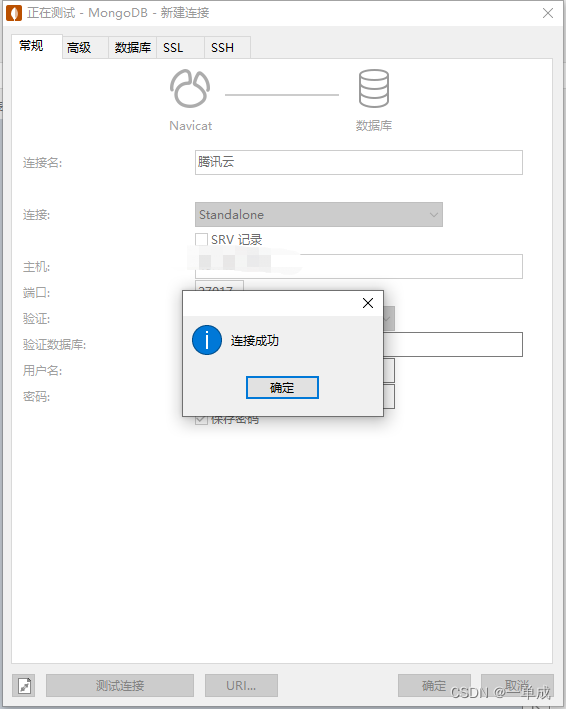
MongoDB文档--基本安装-linux安装(mongodb环境搭建)-docker安装(挂载数据卷)-以及详细版本对比
阿丹: 前面了解了mongodb的一些基本概念。本节文章对安装mongodb进行讲解以及汇总。 官网教程如下: 安装 MongoDB - MongoDB-CN-Manual 版本特性 下面是各个版本的选择请在安装以及选择版本的时候参考一下: MongoDB 2.x 版本:…...
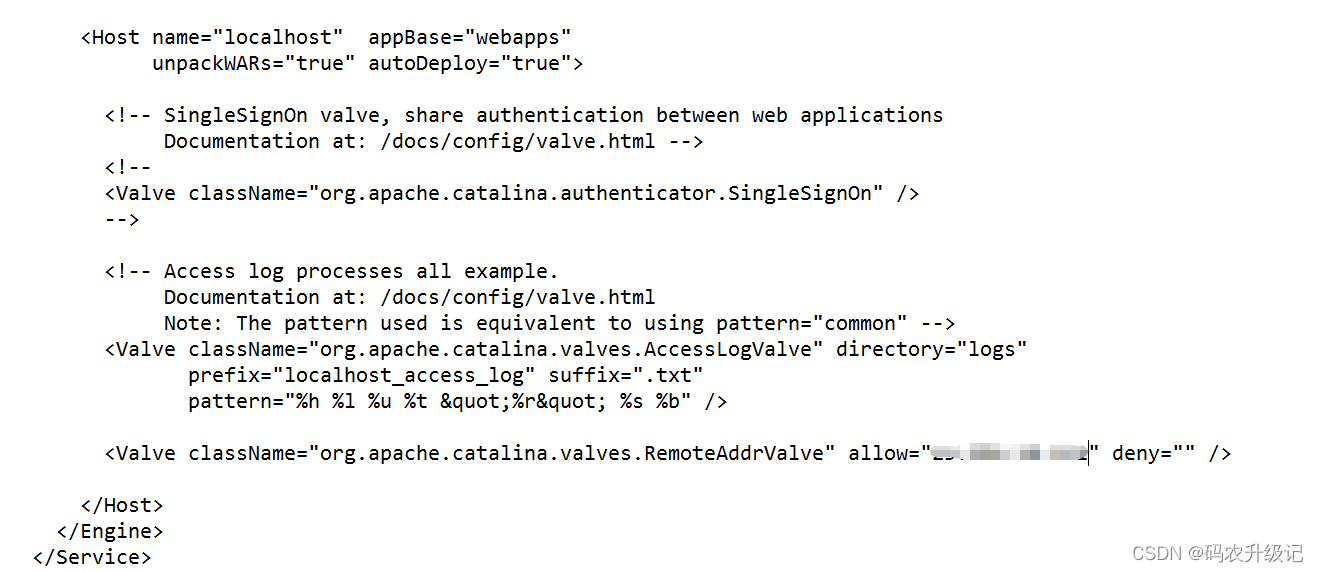
tomcat限制IP访问
tomcat可以通过增加配置,来对来源ip进行限制,即只允许某些ip访问或禁止某些来源ip访问。 配置路径:server.xml 文件下 标签下。与同级 <Valve className"org.apache.catalina.valves.RemoteAddrValve" allow"192.168.x.x&…...

互联网宠物医院系统开发:数字化时代下宠物医疗的革新之路
随着人们对宠物关爱意识的提高,宠物医疗服务的需求也日益增加。传统的宠物医院存在排队等待、预约难、信息不透明等问题,给宠物主人带来了诸多不便。而互联网宠物医院系统的开发,则可以带来许多便利和好处。下面将介绍互联网宠物医院系统开发…...

docker镜像批量导出导入
docker镜像批量导出导入 image_tar为存储镜像目录 删除所有容器 一、首先需要停止所有运行中的容器 docker stopdocker ps -a -q docker ps -a -q 意思是列出所有容器(包括未运行的),只显示容器编号,其中 -a : 显示所有的容器&…...
宇凡微2.4g遥控船开发方案,采用合封芯片
2.4GHz遥控船的开发方案是一个有趣且具有挑战性的项目。这样的遥控船可以通过无线2.4GHz频率进行远程控制,让用户在池塘或湖泊上畅游。以下是一个简要的2.4GHz遥控船开发方案: 基本构想如下 mcu驱动两个小电机,小电机上安装两个螺旋桨&#…...
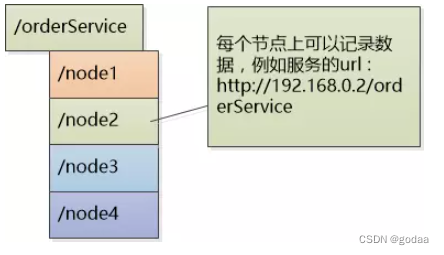
RPC框架引入zookeeper服务注册与服务发现
Zookeeper概念及其作用 ZooKeeper是一个分布式的,开放源码的分布式应用程序协调服务,是Google的Chubby一个开源的实现,是大数据生态中的重要组件。它是集群的管理者,监视着集群中各个节点的状态根据节点提交的反馈进行下一步合理…...

MySQL用通配符过滤数据
简单的不使用通配符过滤数据的方式使用的值都是已知的,但是当搜索产品名中包含ashui的所有产品时,用简单的比较操作符肯定不行,必须使用通配符。利用通配符可以创建比较特定数据的搜索模式。 通配符:用来匹配值的一部分的特殊字符…...

低通、高通、带通、阻通滤波器
目录 低通、高通、带通、阻通滤波器 低通、高通、带通、带阻滤波器的区别 通俗理解: 1、低通滤波器 2、高通滤波器 3、带通滤波器 4、带阻滤波器 5、全通滤波器 低通、高通、带通、阻通滤波器 低通、高通、带通、带阻滤波器的区别 低通滤波器:只…...

IDEA SpringBoot Maven profiles 配置
IDEA SpringBoot Maven profiles 配置 IDEA版本: IntelliJ IDEA 2022.2.3 注意:切换环境之后务必点击一下刷新,推荐点击耗时更短。 application.yaml spring:profiles:active: env多环境文件名: application-dev.yaml、 applicat…...

微信小程序 背景图片如何占满整个屏幕
1. 在页面的wxss文件中,设置背景图片的样式: page{background-image: url(图片路径);background-size: 100% 100%;background-repeat: no-repeat; } 2. 在页面的json文件中,设置背景图片的样式: {"backgroundTextStyle&qu…...

邪恶版ChatGPT来了!
「邪恶版」ChatGPT 出现:每月 60 欧元,毫无道德限制,专为“网络罪犯”而生。 WormGPT 并不是一个人工智能聊天机器人,它的开发目的不是为了有趣地提供无脊椎动物的人工智能帮助,就像专注于猫科动物的CatGPT一样。相反&…...

一、Postfix[安装与配置、smtp认证、Python发送邮件以及防垃圾邮件方法、使用腾讯云邮件服务]
Debian 11 一、安装 apt install postfix 二、配置 1.dns配置 解释:搭建真实的邮件服务器需要在DNS提供商那里配置下面的dns 配置A记录mail.www.com-1.x.x.x配置MX记录www.com-mail.www.com 解释:按照上面的配置通常邮件格式就是adminwww.com其通过…...

React哲学——官方示例
在本篇技术博客中,我们将介绍React官方示例:React哲学。我们将深入探讨这个示例中使用的组件化、状态管理和数据流等核心概念。让我们一起开始吧! 项目概览 React是一个流行的JavaScript库,用于构建用户界面。React的设计理念是…...
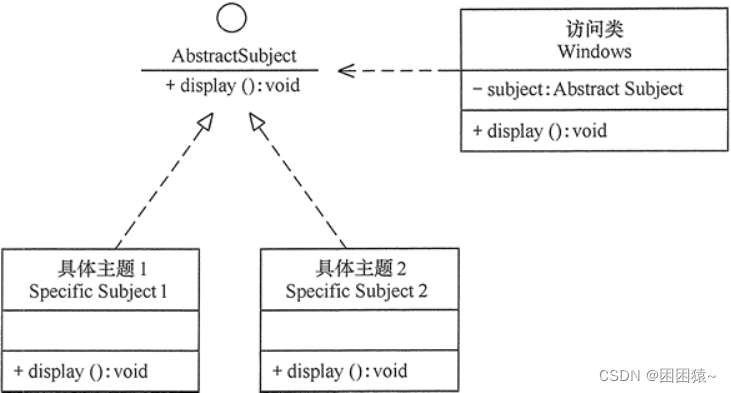
设计模式之开闭原则
什么是开闭原则? 开放封闭原则称为OCP原则(Open Closed Principle)是所有面向对象原则的核心。 “开闭原则”是面向对象编程中最基础和最重要的设计原则之一。 软件设计本身所追求的目标就是封装变化、降低耦合,而开放封闭原则正是对这一…...

Linux中的file命令:查看文件类型
2023年8月1日,周二上午 目录 简要说明使用方法MIME类型举例说明 简要说明 在Linux中,file命令用于识别文件类型。 file命令可以识别各种类型的文件,包括普通文件、目录、符号链接、设备文件、压缩文件、二进制可执行文件等。 它是一个非常…...
结构体的进阶应用)
基于算法竞赛的c++编程(28)结构体的进阶应用
结构体的嵌套与复杂数据组织 在C中,结构体可以嵌套使用,形成更复杂的数据结构。例如,可以通过嵌套结构体描述多层级数据关系: struct Address {string city;string street;int zipCode; };struct Employee {string name;int id;…...
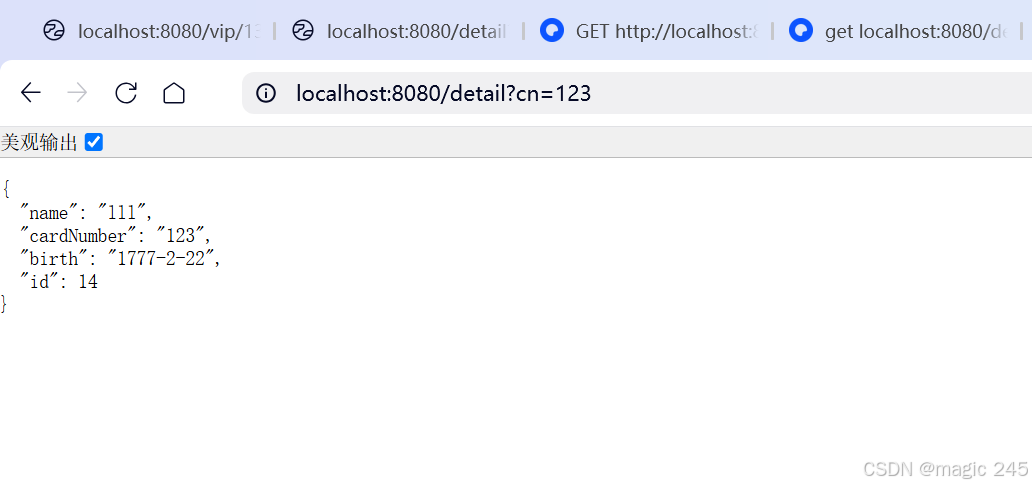
Lombok 的 @Data 注解失效,未生成 getter/setter 方法引发的HTTP 406 错误
HTTP 状态码 406 (Not Acceptable) 和 500 (Internal Server Error) 是两类完全不同的错误,它们的含义、原因和解决方法都有显著区别。以下是详细对比: 1. HTTP 406 (Not Acceptable) 含义: 客户端请求的内容类型与服务器支持的内容类型不匹…...
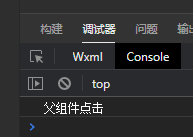
微信小程序之bind和catch
这两个呢,都是绑定事件用的,具体使用有些小区别。 官方文档: 事件冒泡处理不同 bind:绑定的事件会向上冒泡,即触发当前组件的事件后,还会继续触发父组件的相同事件。例如,有一个子视图绑定了b…...

利用ngx_stream_return_module构建简易 TCP/UDP 响应网关
一、模块概述 ngx_stream_return_module 提供了一个极简的指令: return <value>;在收到客户端连接后,立即将 <value> 写回并关闭连接。<value> 支持内嵌文本和内置变量(如 $time_iso8601、$remote_addr 等)&a…...

R语言AI模型部署方案:精准离线运行详解
R语言AI模型部署方案:精准离线运行详解 一、项目概述 本文将构建一个完整的R语言AI部署解决方案,实现鸢尾花分类模型的训练、保存、离线部署和预测功能。核心特点: 100%离线运行能力自包含环境依赖生产级错误处理跨平台兼容性模型版本管理# 文件结构说明 Iris_AI_Deployme…...
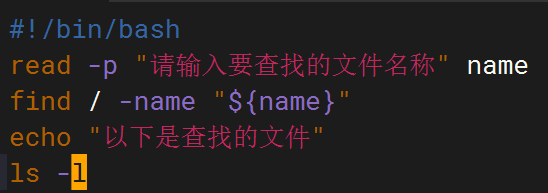
shell脚本--常见案例
1、自动备份文件或目录 2、批量重命名文件 3、查找并删除指定名称的文件: 4、批量删除文件 5、查找并替换文件内容 6、批量创建文件 7、创建文件夹并移动文件 8、在文件夹中查找文件...

条件运算符
C中的三目运算符(也称条件运算符,英文:ternary operator)是一种简洁的条件选择语句,语法如下: 条件表达式 ? 表达式1 : 表达式2• 如果“条件表达式”为true,则整个表达式的结果为“表达式1”…...

基础测试工具使用经验
背景 vtune,perf, nsight system等基础测试工具,都是用过的,但是没有记录,都逐渐忘了。所以写这篇博客总结记录一下,只要以后发现新的用法,就记得来编辑补充一下 perf 比较基础的用法: 先改这…...

基于Docker Compose部署Java微服务项目
一. 创建根项目 根项目(父项目)主要用于依赖管理 一些需要注意的点: 打包方式需要为 pom<modules>里需要注册子模块不要引入maven的打包插件,否则打包时会出问题 <?xml version"1.0" encoding"UTF-8…...

【Zephyr 系列 10】实战项目:打造一个蓝牙传感器终端 + 网关系统(完整架构与全栈实现)
🧠关键词:Zephyr、BLE、终端、网关、广播、连接、传感器、数据采集、低功耗、系统集成 📌目标读者:希望基于 Zephyr 构建 BLE 系统架构、实现终端与网关协作、具备产品交付能力的开发者 📊篇幅字数:约 5200 字 ✨ 项目总览 在物联网实际项目中,**“终端 + 网关”**是…...
